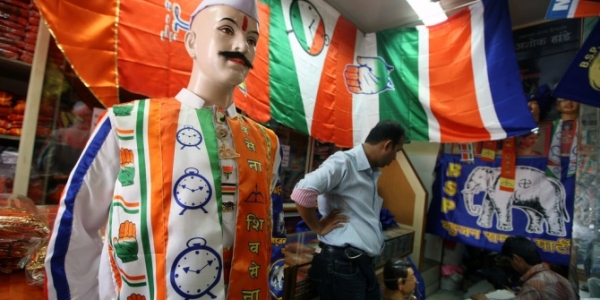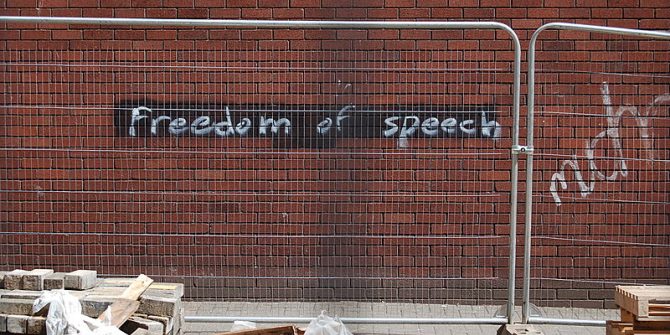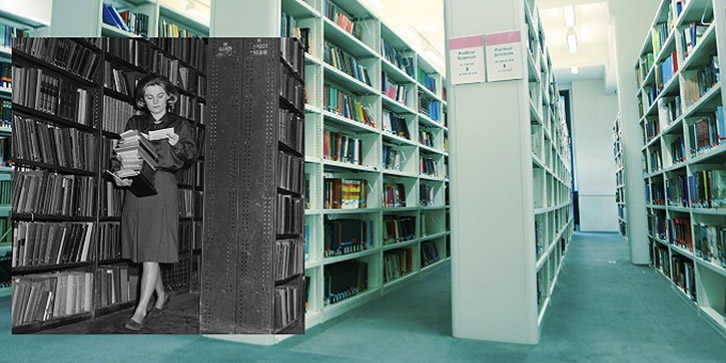 Research has revealed that the act of voting itself holds enormous significance for people because on election days the most important actors are not the politicians but the voters. After watching the ceremony of elections in America unfold this week, Mukulika Banerjee considers motivations for voting in the Indian context.
Research has revealed that the act of voting itself holds enormous significance for people because on election days the most important actors are not the politicians but the voters. After watching the ceremony of elections in America unfold this week, Mukulika Banerjee considers motivations for voting in the Indian context.
Elections in India are the world’s biggest festival and Indians clearly like to vote. Evidence shows that turnouts are often above 80% and higher the more local the election. Indians seem also keener to vote than ever before. Figures show a steady rise in the turnout rates over the last three decades in several parts of the country. The gap between women and men voters has also steadily reduced and in some states female voters outnumber males.
Elections bring a special temporality and carnivalesque atmosphere to public life. Campaign materials transform the physical landscape of the country from its drab everyday character into a festive one as dead trees burst into colour with flags and bunting, roads are packed with political rallies and campaign parties, slogans and songs bellow from tannoys on various forms of motorised transport and the news is dominated by the machinations of the nearly fifty political parties that contest in a national election. The scale of an Indian election is vast— the electorate is 815 million, 12 million officials are deployed, 8 million electronic voting machines are used, the election is scheduled over several weeks to maximise scrutiny and minimise fraud and results are released within a few hours of counting —making it the largest human event anywhere on the planet. The social landscape too is transformed as millions of dollars are pumped into the campaigns, paying for everything from news coverage and advertising to straightforward cash incentives for voters. The constitutionally autonomous and enormously efficient Election Commission of India imposes the Model Code of Conduct on politicians and political parties in an attempt to control expenditure but also to regulate hate speech and use of public spaces—and this forces a regulation of gesture and utterance during the campaign that is otherwise missing in everyday public life. In a pragmatic move, supporters of rival parties from the same neighbourhood also resort to exaggerated civility mindful of the need to co-exist after the elections have passed. Election time in India is thus loud, rambunctious, efficient and exciting.
But what does the enthusiasm for voting actually signify? Why do voters in India—or indeed in any other democracy—want to vote? One quick explanation offered, given the use of money and muscle power during elections, is that voting is incentivised in various ways. High voter turnout is thus attributed to voters feeling coerced or bribed to vote. But evidence also shows that parties and politicians who spend or intimidate the most in campaigns do not always win elections, an indication that they are not always effective and voters do not feel any obligation vote for those handing out freebies. In work on the more popular research question of “who (rather than why) do people vote for?” transactional reasons of getting something for one’s vote certainly seem to be important. These reasons could include getting “their” candidate to power, to support the political party that stands for their values, or to reward the party or candidate that has done the best work in making their lives better. This is certainly true; using your vote to express your choice—as captured in the Hindi word for “vote”, matdan.

Several factors determine voter choice and as a current three-year study by an Indo-European network of scholars from the Centre for the Study of Developing Societies, Jawaharlal Nehru University, London School of Economics, King’s College London and the Center for International Studies and Research CERI-Sciences Po shows, more and more people vote for development interests rather than merely to support the party that projects their ethnic or caste identity. Further, and even more startlingly, in Indian elections, an ever growing number of voters are checking the last option on the ballot paper “None of the Above” (introduced in 2014). In some seats, the votes for NOTA have been larger than the winning margin, thereby determining the result. Do people take the trouble to go and vote only to register their rejection of every candidate? What are they voting for? Why are people in tears when they are unable to vote? How do we explain a middle-aged portly policeman in Kolkata who expresses blissful satisfaction at being able to vote and describes the vote he cast as “beautiful”?
The use of the word “beautiful” to describe a vote should give us pause for thought. Elections globally can be dry affairs dominated by numbers, percentages and tallies and while they are not so in India, even the mad carnival of elections could potentially cause cynicism and apathy. Yet when polling day arrives millions of people dutifully show up with their identity cards to cast their vote and some even describe it as a beautiful experience. How do we explain this? In my book Why India Votes? (2014) I presented some explanations. Based on research conducted by a team of researchers across India, we show that to understand the significance of elections and high voter turnout rates, we need to pay attention not just to politicians but also to the voters themselves. Research revealed that the act of voting itself holds enormous significance for people because on election days the most important actors are not the politicians but the voters. While politicians seemingly dominate campaigns, the irony is that in a democracy even the most arrogant heads have to bow to contest for votes and the most corrupt are unable to buy victory, thereby conceding that it is ordinary people who hold power at least during elections.
Many people noted that elections are also the only time they see the administration doing their work free from political interference, thanks to the Model Code of Conduct imposed on the political establishment. It is the world they desire in ordinary non-electoral times. So do people vote in the hope that things will get better? “Hope is oxygen” they reply, for to not hope is a luxury few can afford and “the vote is our weapon” is how many responded to this question. We were reminded of the meaning of the word dan in matdan: to give without expectation is the real virtue and so it with the vote. So what kind of virtue is this that is not quantifiable and cannot be depicted on graphs and tables? The simple answer is that being able to vote gives people self-respect and dignity. For the vast majority of the impoverished and ostracised population of India, being able to cast a vote freely is an affirmation of their status as human above all and as equal citizens of India.
A polling station in India is the only public space of its kind, where there is genuine social diversity, where women are unafraid, where VIPs cannot be ushered to the front of the queue and where people are forced to stand shoulder to shoulder regardless of caste, class, skin colour or the richness of their attire. Women have to queue behind their domestic staff and men wearing gold watches stand behind those without shoes on their feet—there is no place for a sense of entitlement or privilege at the polling station. Given India’s pernicious and vicious inequality this is a radical arena. The procedure inside the polling booth reinforces the dignity of the voter further. She is treated politely and efficiently by officials, has her name called out without mention of father or husband and sees her name on an official record, proving she is an individual in her own right. Each of these actions reaffirms the identity of ordinary people as equal citizens of India, each of whom counts and is worthy of respect—and this alone for many is a good reason to vote. In fulfilling their duty to vote, people noted that they had claimed their most fundamental right as citizens. And the importance of the secret ballot was paramount in making this act of voting meaningful, enabling voters to silence the noise of the campaign and to vote according to their conscience. It should not surprise us therefore that the ink mark that is made on every voter’s left index finger to avoid voter fraud has come to be valued stigmata. People proudly display their inked fingers after voting for it is a material manifestation of a bundle of emotions and democratic values that entering the polling booth confers. As one Dalit man put it, “after voting I walked tall, as I felt I too had some value in society.”
So in India, elections are the most important constitutionally radical moment in public life. By exercising their franchise, voters are able to reacquaint themselves with the values that democracy promises—equality, fraternity, dignity and civility—values that sadly only manifest themselves on election days.
This article originally appeared in Anthropology News and is reposted with the author’s permission. It gives the views of the author, and not the position of the South Asia @ LSE blog, nor of the London School of Economics. Please read our comments policy before posting.
About the Author
 Mukulika Banerjee is Director of the South Asia Centre and Associate Professor of Anthropology at LSE.
Mukulika Banerjee is Director of the South Asia Centre and Associate Professor of Anthropology at LSE.







